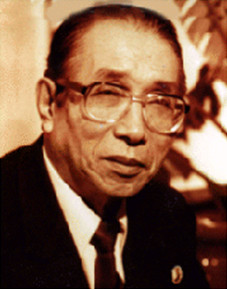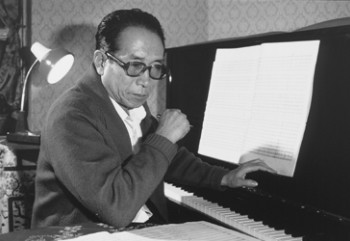김원균
Настоящее имя: 김원균
Об исполнителе:
Kim Won-gyun, or 김원균, also 金元均 and Kim Wŏn'gyun (2 January 1917, Wonsan, Kangwon Province, Korea — 5 April 2002) was a North Korean composer, the International Music Council honorary member, and one of only two composers from the isolated country that gained international exposure (alongside Choi Sung-hwan (1936—1981), who adapted Korean folk song, "Arirang," as the modern classical orchestral suite in 1976). Won-gyun authored the North Korean national anthem "Aegukka" (애국가) and invented a particular style of Sea of Blood-like revolutionary epic operas. He held various high-profile official posts in subsequent years, serving as the president of the Korean Musicians Union, president of Pyongyang Music and Dance University (since 1960), and the general director of the Sea Of Blood Opera Company (1985). Won-gyun dropped out of high school after three grades and, according to North Korean official legend, worked as a farmer in 1946 when he happened to write the "Song of General Kim Il Sung." It was at the dawn of Kim Il Sung's cult of personality, who was the leader of the Workers' Party of North Korea at the time, and the first verifiable song that mentioned his name. According to some sources, Kim subsequently formal musical training in Moscow and Japan. His next commission was to write Aegukka, adopted by the Provisional People's Committee as the national anthem by 1947. Kim Won-gyun quickly grew in status and fame and wrote numerous propagandist songs, hymns, operas, and instrumental works hailing the supreme leader or dedicated to various Kim Il Sung's grandiose "achievements." He most likely worked on the original Sea of Blood opera and its symphonic orchestral version.


